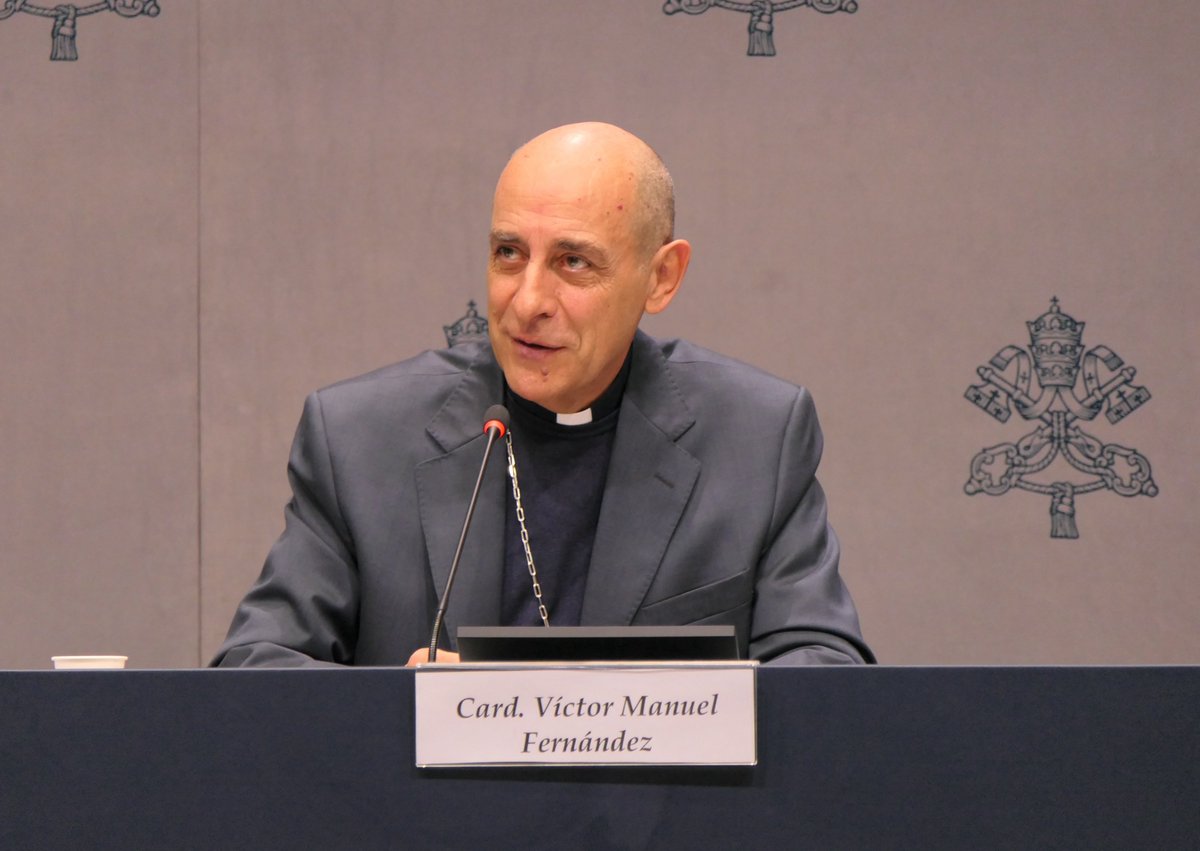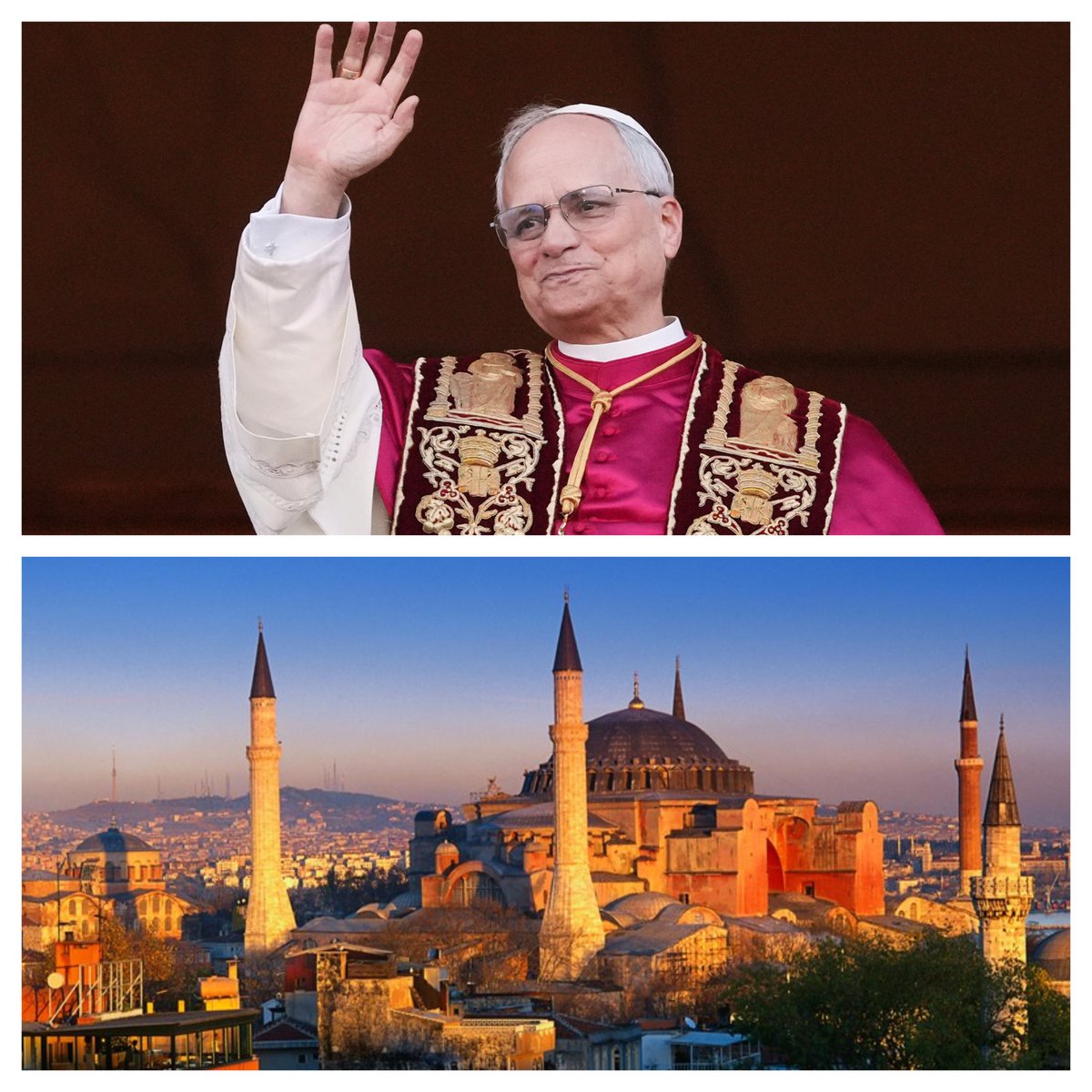Annual message for Diwali…
Vatican hopes Hindu Idolatry will bring Light and Hope to World of Darkness and Despair
It’s that time of the year again when the Novus Ordo Sect congratulates Hindus on their celebration of “light”, known as Diwali or Deepavali, which this year is observed on Nov. 4.
This year’s message, sent by “Cardinal” Miguel Ángel Ayuso Guixot of the so-called Pontifical Council for Interreligious Dialogue, bears the ominous title: “Christians and Hindus: Together Bringing Light in People’s Lives in Times of Despair”. What hopeful light might this be? Let’s find out.
The letter begins with the “Cardinal’s” expressed desire that observing the idolatrous Hindu feast may, “even in the midst of anxiety and uncertainty arising from the present pandemic, and its resultant worldwide crises, light up your lives, homes and communities with the hope for a better future!”
Exactly how celebrating the feast of a religion as idolatrous in the classical sense of the term as Hinduism could bring “hope for a better future”, is not explained. What is certain is that such an idea is not compatible with the Gospel of our Blessed Lord and Savior Jesus Christ: “Wherefore, my dearly beloved, fly from the service of idols” (1 Cor 10:14); “Little children, keep yourselves from idols. Amen” (1 Jn 5:21).
Even if the observance of Deepavali could bring hope, it would be a natural hope at best, that is, it would be the confident expectation of natural betterment in the temporal world. But this would at best be a blessing that is merely temporary, which is as nothing when compared to the length of eternity. All the temporal benefits in this world are of no avail if in the end one’s soul is lost: “For what shall it profit a man, if he gain the whole world, and suffer the loss of his soul?” (Mk 8:36).
It is supernatural hope we must focus on. This hope is a theological virtue, as are Faith and charity. Hope “is that disposition of the soul which enables it to aspire towards God as its last end and towards all the means, spiritual and temporal, necessary to the attainment of that end; knowing that neither means nor end can be achieved by its own efforts unaided by the grace of God and that co-operation with that grace is necessary” (Donald Attwater, ed., A Catholic Dictionary, 3rd ed. [New York, NY: The Macmillan Company, 1958], s. v. “hope”).
That is why St. Paul calls “Christ Jesus our hope” (1 Tim 1:1): Without Christ, mankind would have no ultimate hope whatsoever. It might have hope for less unemployment or better healthcare, but it could certainly not hope for eternal life in the Beatific Vision, which is the only purpose for which God created humanity. And this true God “hath regenerated us unto a lively hope, by the resurrection of Jesus Christ from the dead” (1 Pet 1:3), regardless of whether we are Gentile or Jew (see Col 3:11). It is because “in his name the Gentiles shall hope” (Mt 12:21) that we must greatly desire the conversion of Hindus to Catholicism as much as of any other non-Catholic.
The Vatican message goes on to say that “both Christians and Hindus can bring the light of hope in people’s lives in such challenging times.” How can they do that? What is the common denominator? It’s obviously not “the true light, which enlighteneth every man that cometh into this world” (Jn 1:9), namely, Jesus Christ, the Son of God. What, then, is it?
Why, “solidarity and fraternity”, of course!
The power of solidarity unleashed in alleviating the suffering and assisting the needy, more so with an interreligious character and responsibility, gives visibility to the light of hope by putting in evidence the response which adherents of all religious traditions are called upon to make in times of despair and darkness. Bringing light together in people’s lives through interreligious solidarity also validates the usefulness and resourcefulness of religious traditions in society.
Note well that the Vatican message validates “religious traditions” — plural! — as a positive good on account of their “usefulness and resourcefulness … in society.” Because, you see, the true religion alone wouldn’t be useful or resourceful enough!
The apostate statement continues:
A growing awareness of the need to be with and to belong to one another in the present pandemic period calls for finding, more and more, ways of bringing the light of hope where there is discord and division, destruction and devastation, deprivation and dehumanization. Only through a greater awareness among us that we are all part of one another, that we are brothers and sisters of one another (cfr. Pope Francis, Encyclical Letter Fratelli Tutti- On Fraternity and Social Friendship, 3 October 2020) and that we have a shared responsibility for one another and for the planet, which is our ‘common home’, can we attempt to lift us out of despair of any kind.
Notice that the necessity of Jesus Christ and His grace is not mentioned at all, nor even hinted at. The “hope” the Vatican II Sect is proclaiming in this message takes its origin in man, in nature, not in God or in grace. This is Naturalism!
Next, “Cardinal” Guixot doubles down:
In times of crisis, while religious traditions – as repositories of centuries of wisdom – have the power of lifting our sagging spirits, they also have the capacity to help individuals and communities to reset their life’s compass with hope, with their gaze fixed beyond their present despair. Above all else, they instruct and invite their adherents to reach out, using every means in their power, to those who feel a sense of hopelessness so as to give them hope.
See! All religions have the power to engender hope! How so? Easy: They are all “repositories of centuries of wisdom”, according to the post-Catholic Vatican.
How much more Naturalist can it get? How much more obvious does the apostasy have to become until people finally see what’s going on?
The blasphemous message ends as follows:
As believers grounded in our own respective religious traditions and as persons with shared vision for and shared responsibility towards humanity, in particular the suffering humanity, may we Christians and Hindus, individually and collectively, and joining hands with people of other religious traditions and of good will, reach out to people who are in despair, to bring light into their lives!
We wish you all a Happy Deepavali!
No, not happy Deepavali! Catholics cannot pretend that there is any genuine happiness to be found in, derived from, or even associated with, the observance of an idolatrous feast! And we would never want Hindus to seek their happiness in it, for they will never be able to find it in the false lights of Diwali. When a man stands at the edge of a cliff, one does not wish him “happy moving forward”!
For the Vatican to confirm Hindus in their false religion by pretending that there is hope for a better future for them while their souls remain steeped in sin and what Pope Pius XI called “the darkness of idolatry”, is a great spiritual crime. As St. Paul asked rhetorically, “what fellowship hath light with darkness?” (2 Cor 6:14).
In the 19th century, Fr. Michael Müller (1825-99) hit the nail on the head when he remarked: “It is impious to say, ‘I respect every religion.’ This is as much as to say: I respect the devil as much as God, vice as much as virtue, falsehood as much as truth, dishonesty as much as honesty, Hell as much as Heaven” (The Church and Her Enemies [New York, NY: Benziger Brothers, 1880], p. 287). And that is precisely what the Vatican II Sect does by encouraging Hindus in the observance of their idolatry.
To get at least a glimpse of just how dark that idolatry is, we need but recall what Hindu gods are worshipped on Diwali, according to Wikipedia: On the eve of the feast, “families offer prayers (puja) to Lakshmi and Ganesha, and lay offerings of puffed rice, candy toys, rice cakes and batashas (hollow sugar cakes)”. Ganesha is the Hindu god of beginnings, science, and wisdom; and Lakshmi is the goddess of wealth, fortune, and prosperity, as noted in their respective Wikipedia entries. To say that worshipping Ganesha and Lakshmi on Diwali will contribute to a hopeful, light-filled future, is not only heresy but blasphemy!
According to the now-defunct Novus Ordo news org Zenit, the Hindu feast is “based on ancient mythology, [and] it represents the victory of truth over lies, of light over darkness, of life over death, and of good over evil. The actual celebration lasts three days, marking the beginning of a new year, family reconciliation, especially between brothers and sisters, and worship of God [sic].”
Worship of God? No! The idols Ganesh and Lakshmi are not God, they are demons! “For all the gods of the Gentiles are devils…” (Ps 95:5). Yet, the abominable Second Vatican Council (1962-65) taught that “in Hinduism, men contemplate the divine mystery and express it through an inexhaustible abundance of myths and through searching philosophical inquiry” (Decree Nostra Aetate, n. 2). It outrageously proclaimed, furthermore, that the “Catholic Church rejects nothing that is true and holy in [other] religions. She regards with sincere reverence those ways of conduct and of life, those precepts and teachings which, though differing in many aspects from the ones she holds and sets forth, nonetheless often reflect a ray of that Truth which enlightens all men” (ibid.).
What an infernal creed the Vatican II religion has! It took them only a few years after the death of the last known Pope (Pius XII, d. 1958) to go from “the darkness of idolatry” to “contemplation of the divine mystery” that “reflects rays of divine Truth” in that very same idolatry! True Catholicism is not afraid to call idolatry by its name and to condemn it as spiritual darkness, for that it truly is; at the same time, it seeks not the destruction but the conversion and eternal happiness of those who are unhappily caught up in the service of idols. It thus reflects the Church’s divine mission to convert the nations to Jesus Christ and His Mystical Body, the Church (see Mk 16:15-16; 1 Cor 12:27; cf. 1 Tim 2:4).
To sum up: The true Catholic Church rejects Hinduism as being “the darkness of idolatry”, whereas the Vatican II Sect rejoices in Hinduism as “men contemplat[ing] the divine mystery” and as representing “the victory … of light over darkness.” Yet our Blessed Lord said: “I am come a light into the world; that whosoever believeth in me, may not remain in darkness” (Jn 14:56). Indeed, Jesus Christ alone is “the light [that] shineth in darkness, and the darkness did not comprehend it” (Jn 1:5). Only He is “the true light, which enlighteneth every man that cometh into this world” (Jn 1:9).
Let all repudiate and despise the darkness of Diwali!
Image source: shutterstock.com (sattra yothakhammee)
License: paid






No Comments
Be the first to start a conversation